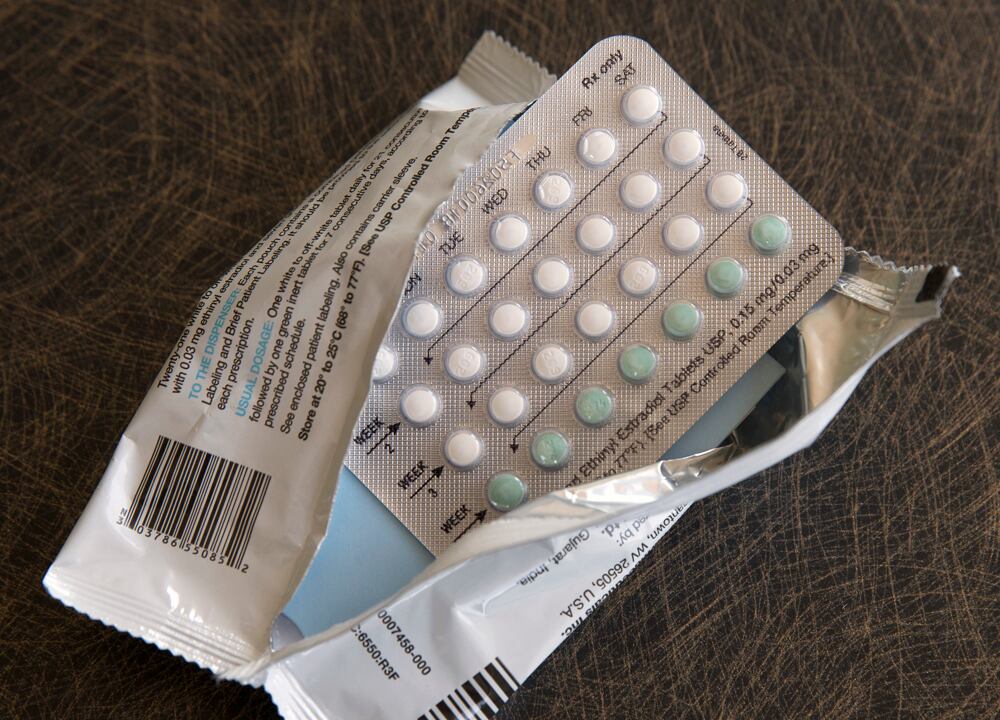When it comes to birth control, "the pill" has long been the preferred choice for many women. The introduction of a pill as a method of contraception was a social-shifting moment in history as it allowed women, for the first time, to have the power to prevent pregnancy on their own. But curiously, in its development, placebo pills were included as part of the monthly pack of pills, and today there are questions about whether or not they're even necessary.
Let's start at the beginning: Endocrinologist Gregory Pincus and gynecologist John Rock began developing the pill in the 1950s after extensive research on the effects of hormone manipulation on mammal reproductive systems, a study Pincus began in the early 1930s.
There was an increased desire for a new form of contraception after World War II ended. When soldiers came home, couples began to marry and start families at younger ages. Many women began having children in their early 20s and were still physically able to continue having babies in their 30s. But parents wanted more control over their ability to grow their families — or not.
"This was the Baby Boom, so on average they were having four kids. By the time they were 28, 30, they were done, but they still had some 15 to 17 years of fertility ahead of them," Margaret Marsh, Interim Chancellor and history professor at Rutgers University–Camden, told Cheddar. "They became among the most avid supporters of birth control."
The birth control pill was the answer to that desire. Up until it was introduced, other methods of birth control existed but none were as easy or effective. The pill came to market in 1960 after human trials were conducted on women in Haiti and Puerto Rico. Despite hundreds of successful results, the testing was extremely controversial as so little was known about the drug when the trials began in those poorer communities.
Are Periods Necessary?

The development of contraceptive methods is a rather slow and tedious one because of the risks involved with manipulating such a delicate system in the human body. For example, when the Dalkon Shield IUD was introduced in the 1970s, research found that it caused extensive pregnancy complications and in some cases, death. It was on the market for nearly 20 years and millions were prescribed before the company fell to bankruptcy following a slew of lawsuits tied to those complications.
Throughout, the pill remained the superior choice among birth control options.
Typically, if a woman is not on birth control she experiences ovulation (when an egg is released from the ovaries). If it isn't fertilized, it will leave the body, along with the built-up uterine lining.
The way the pill works is that for 21 days, it stops ovulation, and the uterine wall, while not reinforced with additional lining, is stabilized by the hormone progesterone. When a week of placebo pills at the end of a cycle causes progesterone levels to drop, the uterine lining sheds and women experience a period similar to menstruation.
For some users a nagging question lingers: is the week of placebo pills really necessary? Short answer: no. (Although you should always speak to your doctor if you have questions or concerns)
"The placebo pills are kind of included just as a standard [way] to keep you understanding of when your cycle is going to come," said obstetrician and gynecologist Dr. Danielle Jones. "It really doesn't have a physiological function."
It turns out the placebos were part of the original design to help women confirm the pills were working and they were not, in fact, pregnant. But medically, Jones says that part of the cycle is not necessary to protect a woman's health.
Expanding Contraception Options
With options like Depo-Provera shots, hormonal IUDs, and NuvaRings gaining popularity as contraceptive options that also effectively stop periods, the fading allure of the pill is drawing conversation. While consulting a doctor is always recommended for any medical advice, research has found that missing periods while on birth control is safe.
"It is perfectly safe to skip your periods on birth control. If you're not having periods, but you're not on birth control, you're not pregnant, you're not breastfeeding, you're not menopausal, anything like that, [it's] not safe to skip periods and that's when you should talk to your doctor about it. But if you're not having periods while on some form of continuous birth control, [that's] totally reasonable," Jones told Cheddar.
Video produced by Karin Shedd. Article written by Lawrence Banton.
Curious for more? Tune in to Cheddar News.



